How to Choose the Best Payment Processor for Your E-Commerce Store
Selecting the right payment processor for your e-commerce store is one of the most important decisions you can make as a business owner. Efficient, secure, and reliable E-commerce Payment Processing Services are essential to ensuring smooth transactions, boosting customer confidence, and ultimately improving your store’s revenue. With so many providers available, choosing the best one can be a daunting task. This guide will walk you through everything you need to know, from the key features to consider to the most common payment processor options.
In today’s digital economy, e-commerce stores thrive on their ability to offer seamless and secure online transactions. Selecting the right E-commerce Payment Processing Services is not just a technical necessity but also a strategic decision that impacts your customer experience, brand trust, and long-term profitability. The payment processor you choose acts as the middleman between your store, the customer, and the banks, facilitating the secure exchange of funds.
Your business’s success can hinge on how effectively your payment processing system works, how well it integrates with your online store, and how quickly you can receive payments. To make an informed choice, it’s important to understand the key factors that differentiate one payment processor from another.
What is a Payment Processor?
A payment processor is the service or company that handles the transactions between your store and the customer’s bank. Its primary function is to transfer payment details, authenticate transactions, and ensure that funds are transferred securely from the customer’s bank account to your merchant account.
Key Functions of a Payment Processor:
- Authorization: The payment processor checks with the issuing bank to confirm that the customer has sufficient funds.
- Settlement: The processor ensures the funds are moved from the customer’s account into your business account.
- Security: It protects sensitive transaction data and ensures compliance with various security protocols.
Key Factors to Consider When Choosing an E-Commerce Payment Processor
When evaluating E-commerce Payment Processing Services, there are several critical factors to consider to ensure you’re making the best choice for your business.
A. Transaction Fees and Pricing Models
One of the most significant factors to consider is the cost of processing payments. Different payment processors use various pricing models, such as flat fees, percentage-based fees, or a combination of both. Some may also include monthly fees for access to additional features or premium services.
Considerations:
- Transaction fees: Typically, payment processors charge a fee per transaction, often ranging from 1.5% to 3.5%.
- Monthly fees: Some providers offer basic services without a monthly fee but may charge for additional features or integrations.
- Setup costs: Be aware of any initial fees for setting up the payment processor on your site.
- Hidden costs: Look out for extra fees, such as those for international transactions or chargebacks.
B. Security and Compliance
Security should be a top priority when choosing E-commerce Payment Processing Services. With cyber-attacks and data breaches becoming more frequent, it’s essential to ensure that your payment processor complies with industry security standards.
Important Security Features:
- PCI DSS Compliance: Ensure that your payment processor adheres to the Payment Card Industry Data Security Standard, which is required for handling card transactions.
- Encryption: Look for processors that provide SSL encryption to secure transactions.
- Tokenization: This process replaces sensitive customer data with secure tokens to protect information from hackers.
- Fraud detection: Advanced fraud monitoring and detection tools are critical for preventing fraudulent transactions and chargebacks.
C. Payment Processing Speed
The speed at which payments are processed is critical for both customer satisfaction and your business’s cash flow. Some processors offer near-instantaneous processing, while others may take several business days for the funds to appear in your account.
Key Points:
- Settlement times: Consider how quickly the processor transfers funds into your account.
- Delayed payments: Be wary of processors that regularly delay payments, as this could affect your ability to manage cash flow effectively.
- Real-time reporting: Some processors provide real-time transaction updates, which can help you manage your finances more effectively.
D. Global Reach and Payment Methods
If you’re running a global e-commerce business, you’ll want to ensure that your payment processor can handle international payments. This includes the ability to accept multiple currencies and payment methods, as well as compliance with international regulations.
Global Payment Considerations:
- Multi-currency support: Ensure that your processor can handle transactions in multiple currencies if you plan to sell internationally.
- Localization: Payment methods vary by region, so offering localized options can enhance customer trust.
- Foreign transaction fees: Be mindful of any additional fees for processing international transactions.
E. Scalability
Your payment processor should be able to grow with your business. As your store gains more customers, you’ll need a processor that can handle increased transaction volumes without additional costs or system downtimes.
Points to Consider:
- Flexible pricing: Some processors offer discounted rates for businesses with higher transaction volumes.
- Feature upgrades: Choose a provider that offers advanced features like analytics, recurring payments, or subscription management as your business grows.
- Customizable integrations: A scalable payment processor should integrate seamlessly with other software tools as your business evolves.
Read it also: HOW TO CHOOSE THE BEST POS SYSTEM FOR YOUR ECOMMERCE STORE
Different Types of Payment Processors
A. Third-Party Payment Processors
Third-party payment processors, also known as payment aggregators, are services that handle the payment process for multiple businesses. Examples include PayPal, Stripe, and Square. These solutions are often easy to set up, making them a popular choice for small businesses and startups.
Advantages:
- Easy setup: Requires minimal technical knowledge.
- No monthly fees: Many third-party processors charge per transaction without additional monthly costs.
- Instant credibility: Trusted third-party names like PayPal can increase consumer trust.
Disadvantages:
- Higher fees: Transaction fees are generally higher compared to direct payment processors.
- Less control: You have limited control over the transaction process and customer experience.
B. Direct Payment Processors
Direct payment processors are typically used by larger businesses and offer more control and lower fees compared to third-party processors. These processors work directly with your business and are often integrated into your website through a merchant account.
Advantages:
- Lower transaction fees: Typically more cost-effective for high-volume businesses.
- Customizable: Offers more control over payment flows and integrations with your e-commerce platform.
- More features: Direct payment processors often provide more robust features, such as enhanced security, analytics, and customer management tools.
Disadvantages:
- Complex setup: Requires more technical expertise to integrate into your site.
- Monthly fees: Often comes with monthly or setup fees, which may not be ideal for small businesses.
Third-Party vs. Direct Payment Processors
| Feature | Third-Party Payment Processors | Direct Payment Processors |
|---|---|---|
| Setup Time | Quick and simple | Complex and time-consuming |
| Transaction Fees | Higher | Lower |
| Monthly Fees | Usually no or low | Moderate to high |
| Control Over Transactions | Limited | High |
| Best For | Small businesses and startups | Medium to large businesses |
Importance of Security and Compliance
When handling online payments, security should always be a top priority. Your customers are trusting you with sensitive financial information, and a data breach could not only harm your reputation but also lead to legal and financial penalties.
Essential Security Measures for E-Commerce Payment Processing Services:
- PCI DSS Compliance: The Payment Card Industry Data Security Standard is a set of guidelines that all businesses handling card payments must follow. Make sure your payment processor is PCI-compliant.
- SSL Encryption: Secure Sockets Layer encryption ensures that all data transferred between your customer’s browser and your website is encrypted.
- Fraud Prevention Tools: Look for processors that provide robust fraud detection tools, such as machine learning algorithms that can identify suspicious behavior.
- Tokenization and Encryption: These technologies protect sensitive card data by replacing it with a secure, randomly generated token.
Understanding the Costs of Payment Processing
The cost of payment processing is a key factor for any business. While transaction fees are the most obvious cost, there are other fees to consider as well. Different processors charge different rates, and it’s important to find a provider that aligns with your business’s revenue structure.
Common Payment Processor Costs:
- Transaction Fees: Typically, a percentage of each sale, ranging from 1.5% to 3.5%, plus a fixed fee per transaction.
- Monthly Fees: Some processors charge a monthly fee, especially for advanced features like recurring billing or fraud protection.
- Setup Fees: Some providers charge a one-time fee to set up your payment processing system.
- Chargeback Fees: A fee applied when a customer disputes a charge and demands a refund. These can range from $15 to $50 per chargeback.
- Currency Conversion Fees: If you sell internationally, you may be charged a fee for converting foreign currencies.
How to Minimize Payment Processing Costs:
- Negotiate lower rates: If you process a high volume of transactions, you may be able to negotiate lower fees.
- Choose the right pricing model: Some processors offer flat-rate pricing, while others use an interchange-plus model, which may be more cost-effective for high-volume businesses.
- Review your monthly statements: Keep an eye on your processor’s monthly statements to ensure you’re not being charged hidden fees.
Payment Methods and Flexibility
Customers expect flexibility when making payments online. Your E-commerce Payment Processing Services should support a variety of payment methods to meet the needs of different customers and regions.
Payment Methods to Consider:
- Credit and Debit Cards: Ensure that your processor accepts all major card networks, such as Visa, MasterCard, and American Express.
- Digital Wallets: Apple Pay, Google Pay, and PayPal offer quick, one-click checkout options that increase conversion rates.
- Bank Transfers: Some customers prefer direct bank transfers or ACH payments.
- Buy Now, Pay Later (BNPL): Services like Klarna or Afterpay allow customers to split payments into installments, which can increase order value.
- Cryptocurrency: While still niche, some processors allow you to accept Bitcoin or other cryptocurrencies.
Read it also:- ELEVATE YOUR ONLINE TRANSACTIONS WITH MOTUS FINANCIAL’S HOSTED PAYMENT FORMS
Integration with Popular E-Commerce Platforms
When choosing a payment processor, make sure it integrates smoothly with your existing e-commerce platform. Many E-commerce Payment Processing Services offer plugins or APIs that make integration easy. The right payment processor should offer compatibility with popular e-commerce platforms like Shopify, WooCommerce, Magento, and BigCommerce.
Considerations for Integration:
- API Availability: Look for processors that offer robust APIs for seamless integration.
- Plugins and Extensions: If you’re using a platform like Shopify or WooCommerce, choose a processor that provides plugins for easy installation.
- Custom Integration: If you have a custom-built site, ensure that the payment processor can be integrated with minimal technical issues.
- Mobile Compatibility: Make sure the payment processor is optimized for mobile devices, as more customers are shopping from smartphones and tablets.
Customer Support and Reliability
Customer support is a critical component when dealing with payment processing issues. Technical difficulties, security breaches, or disputes can occur at any time, and having access to prompt, reliable support can make all the difference.
What to Look For in Customer Support:
- 24/7 Availability: Payment processing issues can happen at any time, so round-the-clock support is essential.
- Multiple Contact Methods: Look for processors that offer phone, email, and live chat support.
- Self-Service Resources: A robust help center or FAQ section can help you resolve common issues quickly.
- Dedicated Account Manager: Some providers offer dedicated account managers for larger businesses, providing personalized support and faster issue resolution.
Frequently Asked Questions
Q: What are the benefits of using a third-party payment processor like PayPal?
A: Third-party processors are easy to set up, often with no monthly fees, and are widely trusted. However, they usually have higher transaction fees than direct processors.
Q: Is PCI compliance mandatory for all e-commerce stores?
A: Yes, PCI compliance is required for any business accepting credit card payments. Failure to comply can result in penalties.
Q: Can I use multiple payment processors for my e-commerce store?
A: Yes, many businesses use multiple processors to offer diverse payment options and ensure backup during outages.
Q: How can I protect my business from chargebacks?
A: Use fraud detection tools, clear communication, and strong customer service. Some processors also offer chargeback protection.
Q: How long does it take to set up a payment processor?
A: It varies. PayPal and similar third-party processors can be set up in minutes, while direct processors may take days to weeks.
Contact Us
At Motus Financial, we understand that choosing the right E-commerce Payment Processing Services is crucial for your business’s success. Whether you’re a startup or a well-established enterprise, our team is here to help you navigate your payment processing options and find the best solution for your needs. We offer tailored solutions to ensure that your payment processes are secure, efficient, and scalable as your business grows.
For more information or personalized advice, contact us at (608) 819-8666. Let us help you optimize your e-commerce payment solutions for maximum success.
By carefully choosing the right payment processor, you can enhance your customers’ experience, lower transaction costs, and protect your business from security risks. Keeping your payment details updated on platforms like Google My Business can also boost your visibility and credibility, helping your e-commerce store grow. The right E-commerce Payment Processing Services will not only boost your bottom line but also enhance the overall efficiency of your business.

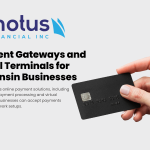

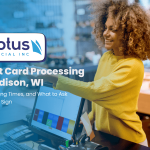


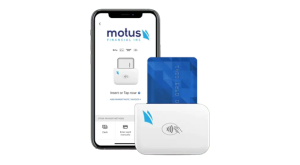
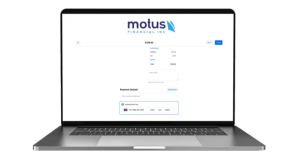
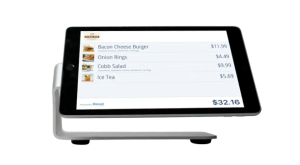 Our POS systems are designed to streamline in-store transactions. With features like inventory management, sales reporting, and customer tracking, our POS solutions help you run your business more efficiently. Our terminals are compatible with various payment methods, including chip cards, contactless payments, and mobile wallets.
Our POS systems are designed to streamline in-store transactions. With features like inventory management, sales reporting, and customer tracking, our POS solutions help you run your business more efficiently. Our terminals are compatible with various payment methods, including chip cards, contactless payments, and mobile wallets.
